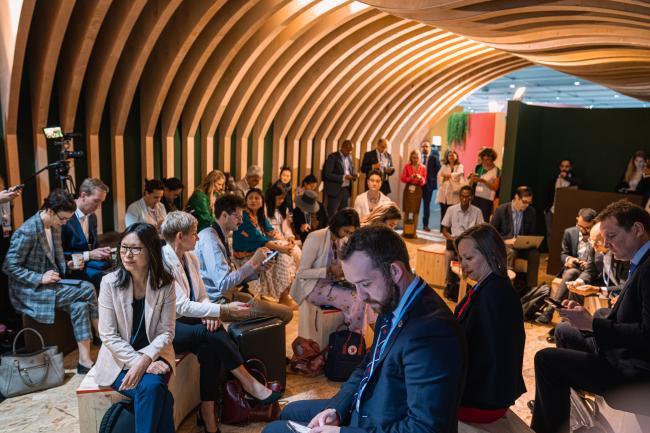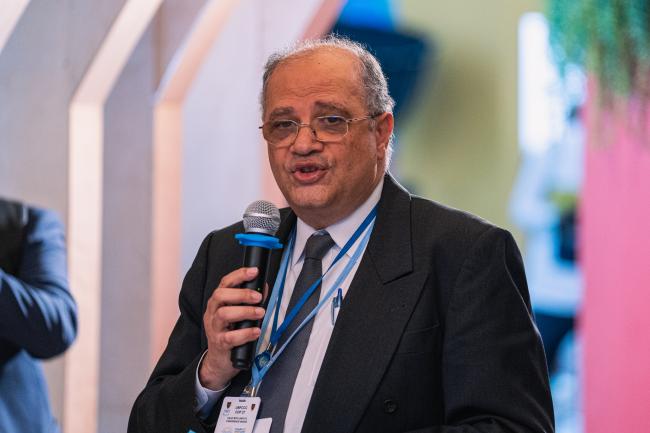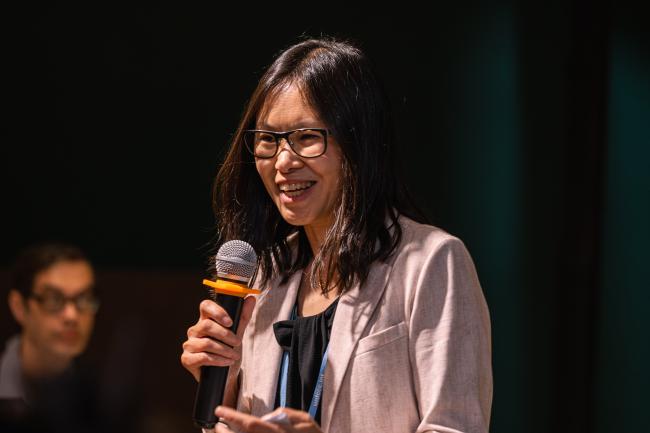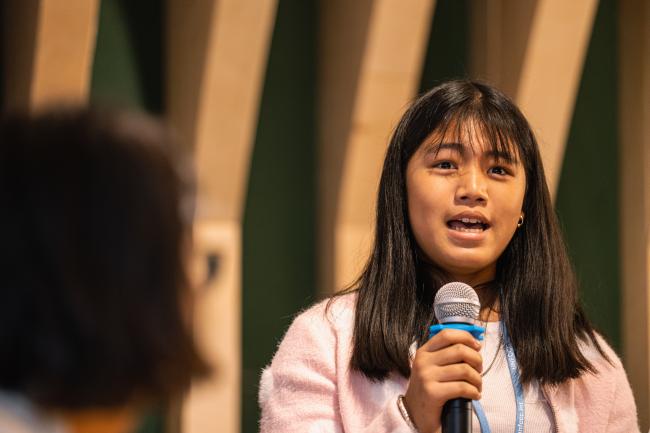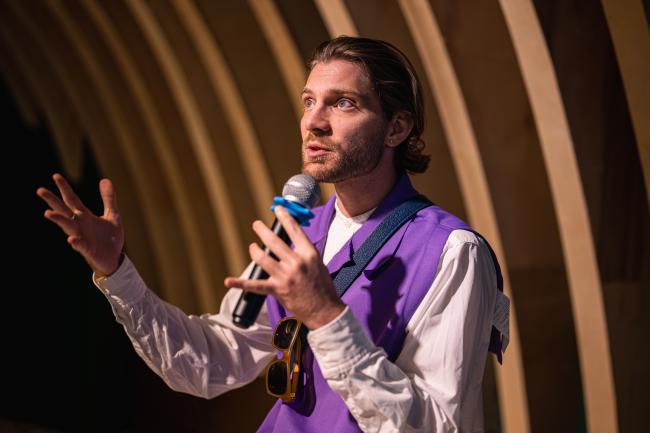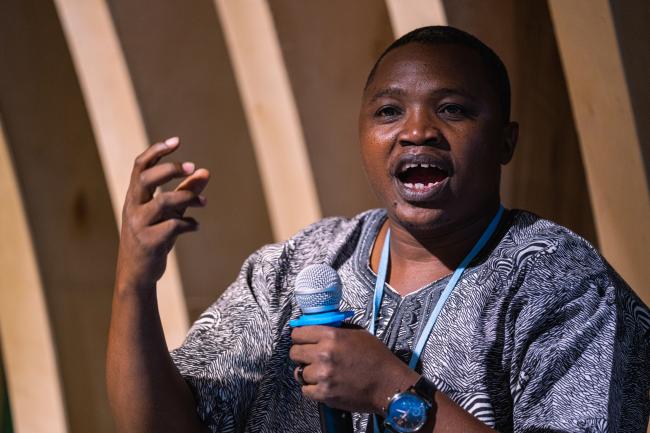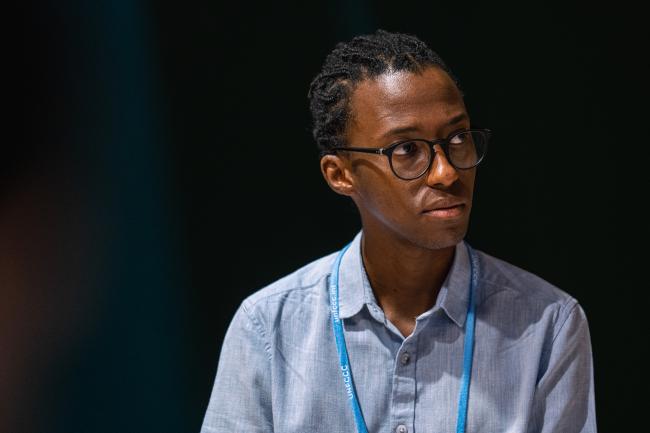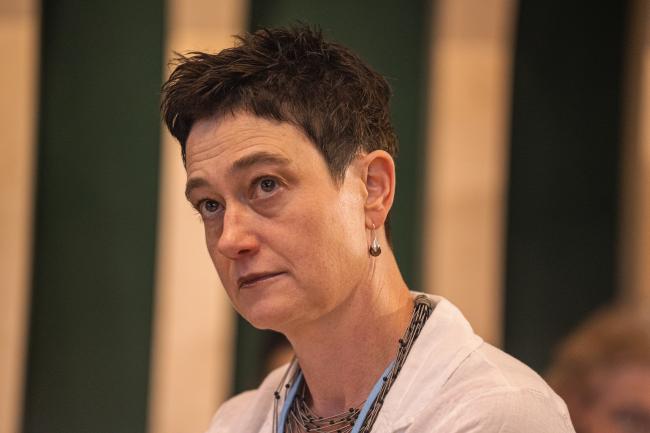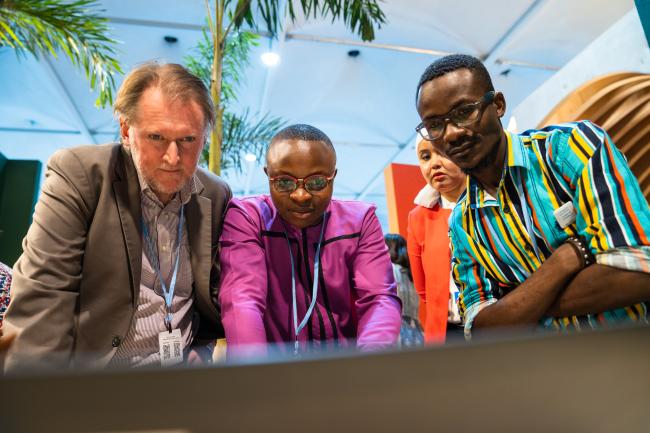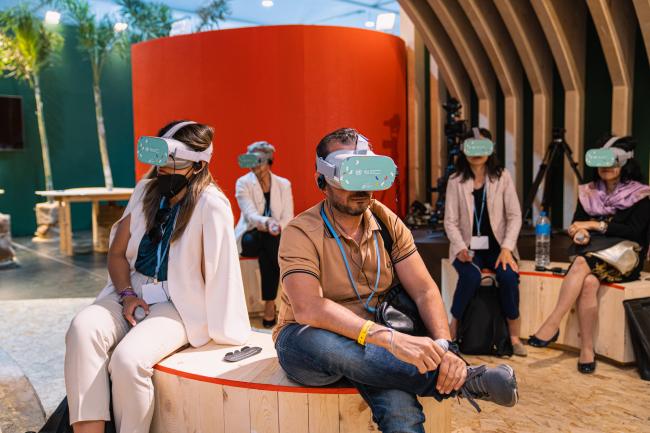Transforming Humanity’s Relationship with Nature
Bringing healthy and harmonious environmental imaginaries to life requires finding pathways that change humanity’s present trajectory. With those pathways in mind, the Resilience Frontiers Pavilion will focus on a different pathway each day.
The Resilience Frontiers Pavilion opened its first day exploring Pathway 1, which focuses on ways to transform our relationship with nature. In an informal space for conversation, moderator Joshua Amponsem, Office of the UN Secretary General’s Envoy on Youth, asked invited speakers and guests to offer their visions of the future and reflect on the meanings of transformation.
Youssef Nassef, UNFCCC, explained the need for a world that gives back more than it takes from the planet. He also emphasized the need to “identify tenets of a transformed world and how we get there.” In that spirit, the event opened with an interactive exercise that encouraged participants to share phrases reflecting their views of a better future. Submitting their phrases online, participants generated an eclectic mix of imaginaries: “add to nature more than you take away”; “breath of fresh air”; and “equality and peace.” These phrases were then turned, using an artificial intelligence tool, into images of flowing streams, green spaces, and other visions.
Invited speakers reflected on pathways to achieve these visions:
Ovais Sarmad, UNFCCC Deputy Executive Secretary, underscored the phrase “breath of fresh air.” He said “This is what this is all about. We need to break boundaries and come out of our inhibitions. Take a breath.”
Sophie Howe, Future Generations Commissioner for Wales, highlighted Welsh legislation that requires policies to take account of future generations by considering a set of interconnected goals.
Xiaomeng Shen, United Nations University, stressed the need to “give people the power of imagination.”
Kristen Dunlop, Climate-KIC, emphasized that we need new understandings of innovation and transformation that create the capacity for experimentation and the possibility of difference. “We are facing a world that is so unsafe that the safety of trying to get there incrementally is ridiculous,” she added.
Amine Bel Hadj Soulami, BNP Paribas, highlighted growing momentum for green bonds and other financial instruments that align with the Sustainable Development Goals.
Indian youth activist Licypriya Kangujam implored political leaders to act on climate change now. “Instead of spending billions on wars, spend them on poverty, education, and climate change,” she said, adding “What a wonderful place this world would be.”
Participants also shared things that they do not want to leave behind in the process of transformation, including: “hope”; “diversity”; “trees and pure water”; “human connection”; “education and health”; and “passion.”
After a break for mint tea, Pavilion designer Ocian Hamal-Smith talked about his vision in designing the pavilion space, which features a roof of curving wooden beams and benches for conversation, and a side room of trees and tables. He said it reflects the need to prompt curiosity, challenge current thinking, and reflect locality.
The Pavilion’s second event featured a wide-ranging sharing of ideas on the topic of “What is a good life?” Moderator Xiaomeng Shen prompted speakers to share thoughts from a variety of cultural, religious, and philosophical points of view.
Kotchakorn Voraakhom, a landscape architect, foregrounded the Buddhist concept that “life is suffering,” which means that life is unexpected. We should ask how to “change our lives to get ready for change,” he said.
Tracey Cooper, Public Health Wales, emphasized interventions at the earliest stages of childhood to help build resilience and create a “healthy destiny.”
Cristina Coc, Maya Peoples of Southern Belize, recounted conversations in her community that connected a good life to peace, hard work, self-determination, and collective stewardship of nature.
Gakemotho Satau, Botswana, described the concept of “ubuntu,” which emphasizes sharing and seeing oneself in others. “Due to the cruelty of money and power, human beings moved away from the ecosystem thinking sphere and focused on monetary economy,” he added. He urged a return to ecosystem thinking that restores a sense of sharing and a common good, and said “No man is an island. A sense of belongingness defines us as humans.”
Kariuki Weru, United Nations University, explained the ethical concept of “eudaimonia,” or virtue ethics that makes one’s moral character the central unit of analysis.
Shen then posed the initial the question to the group, asking them to share their concept of the good life. Participants emphasized gaining a sense of unity and reconnecting to nature.
Voraakhum closed the discussion with a five-minute meditation, guiding participants to relax and let go, “breathing in again like you never experienced this moment before.”
In the afternoon, the Pavilion hosted two interactive events: a computer game highlighting consensus and stakeholder roles in choosing among pathways to net zero; and a virtual reality tour of transformative change in the urban environment.
The Resilience Frontiers Pavilion features different pathways each day. Upcoming pathways on the agenda include transforming our interface with nature; applying lifelong learning; equitable access to data and natural resources; equitable transboundary management; ecosystem approaches to wellbeing; regenerative food production, and transformative financial instruments.
Organizers: Resilience Frontiers, UNFCCC
Contact: Susan Robertson I srobertson@unfccc.int
For more information: https://resiliencefrontiers.org
To receive free coverage of global environmental events delivered to your inbox, subscribe to the ENB Update newsletter.
